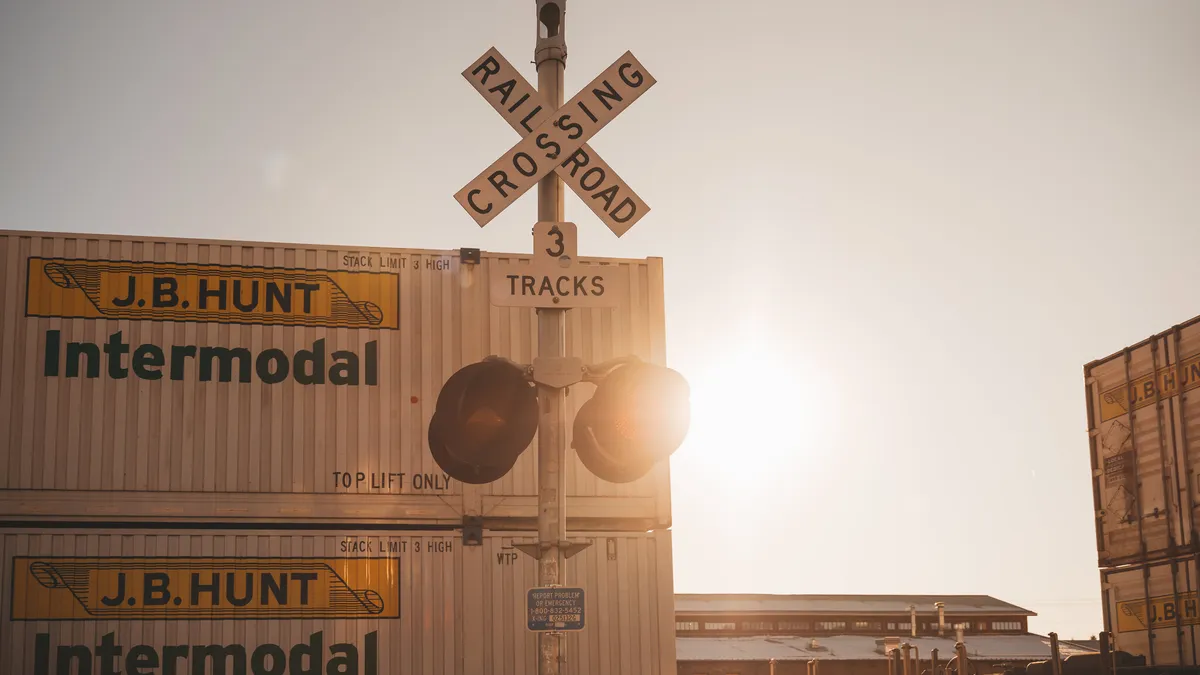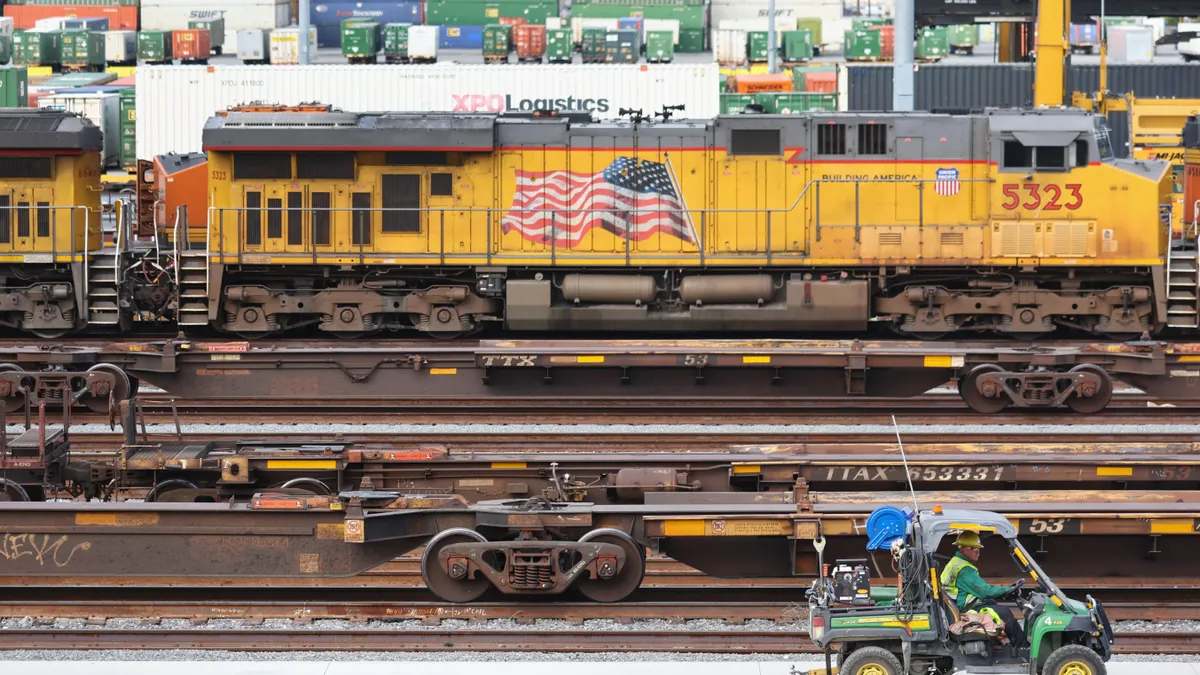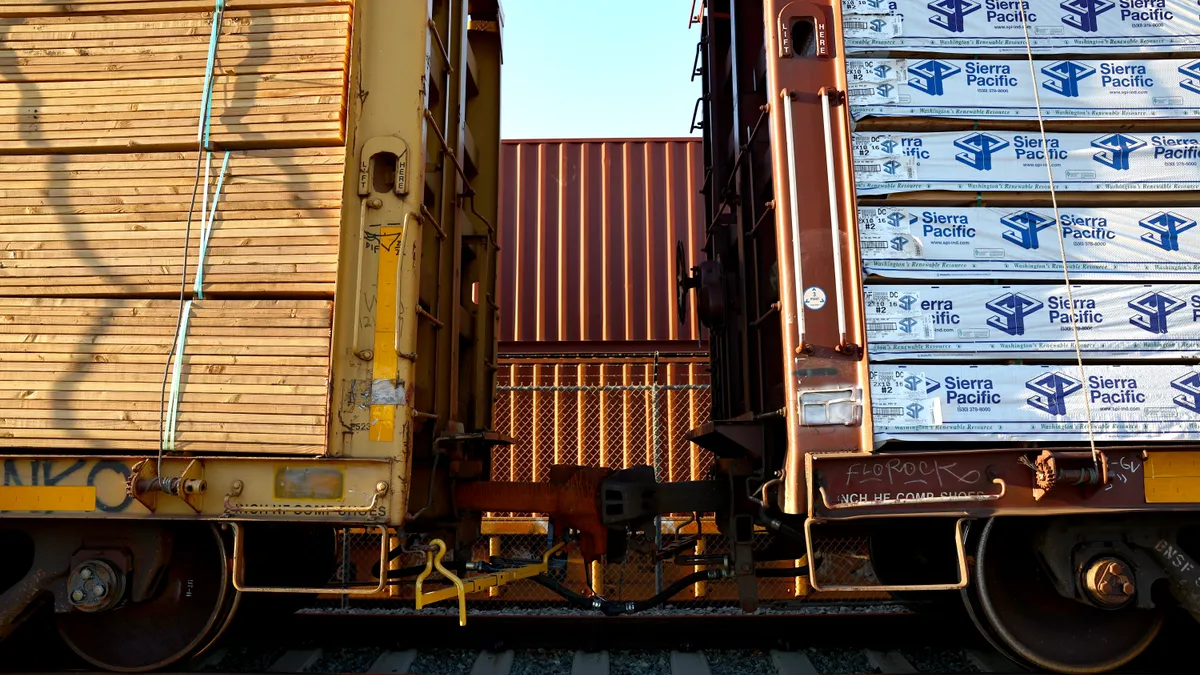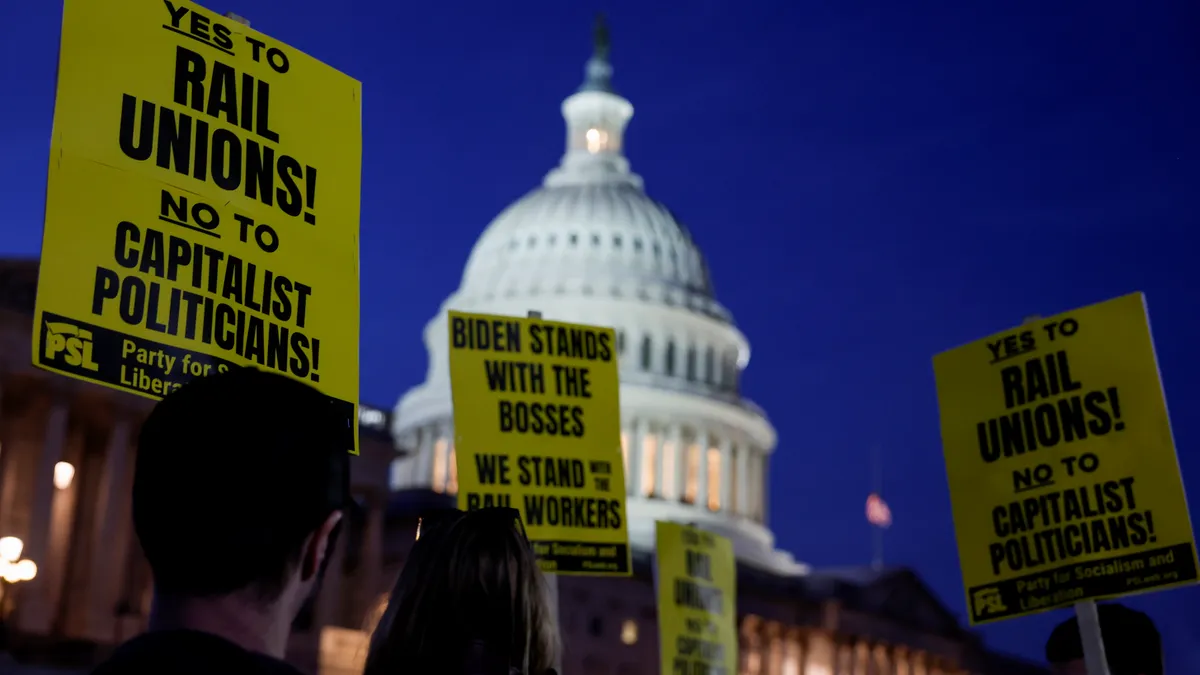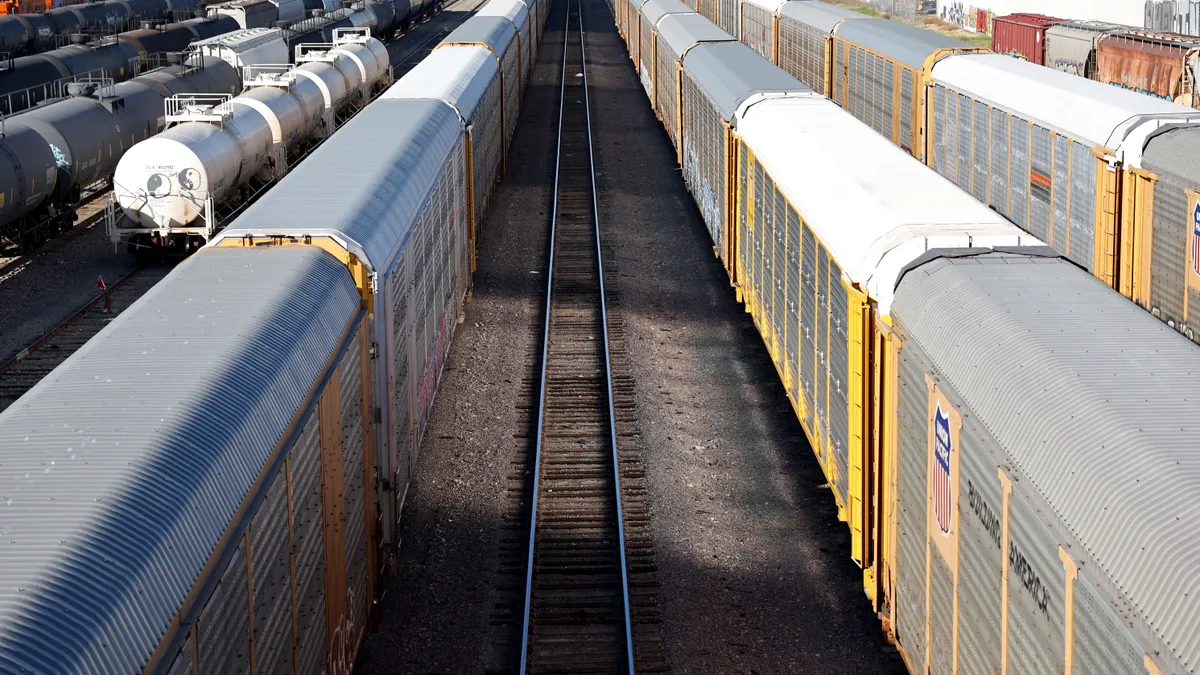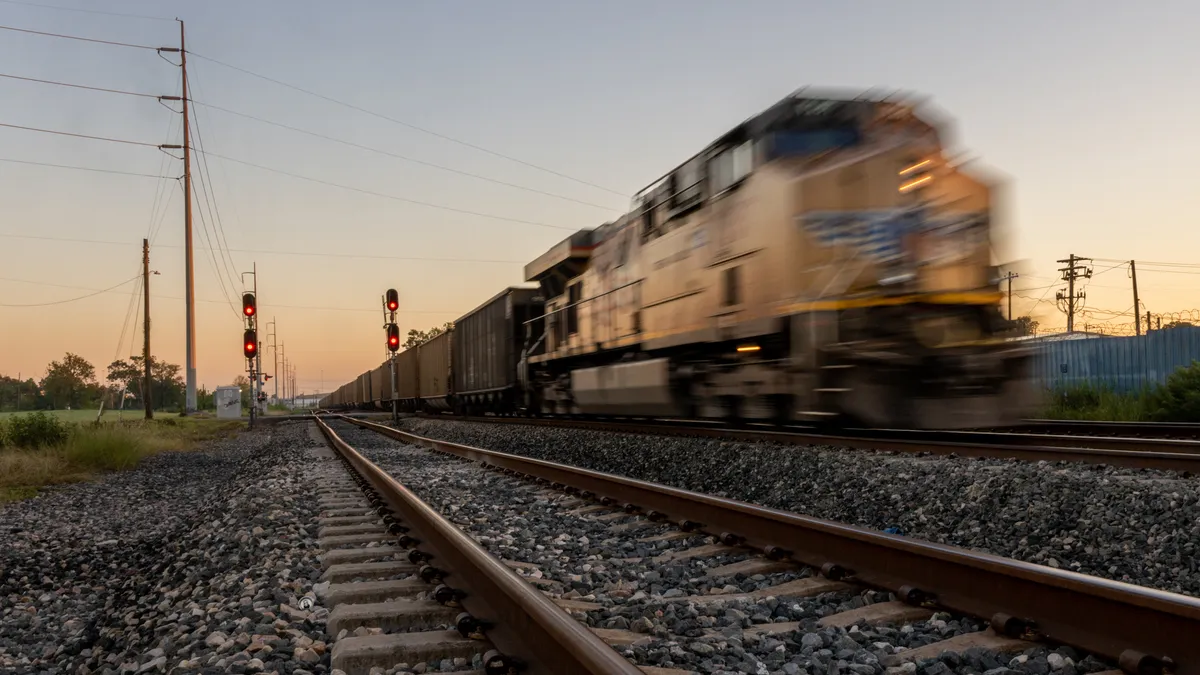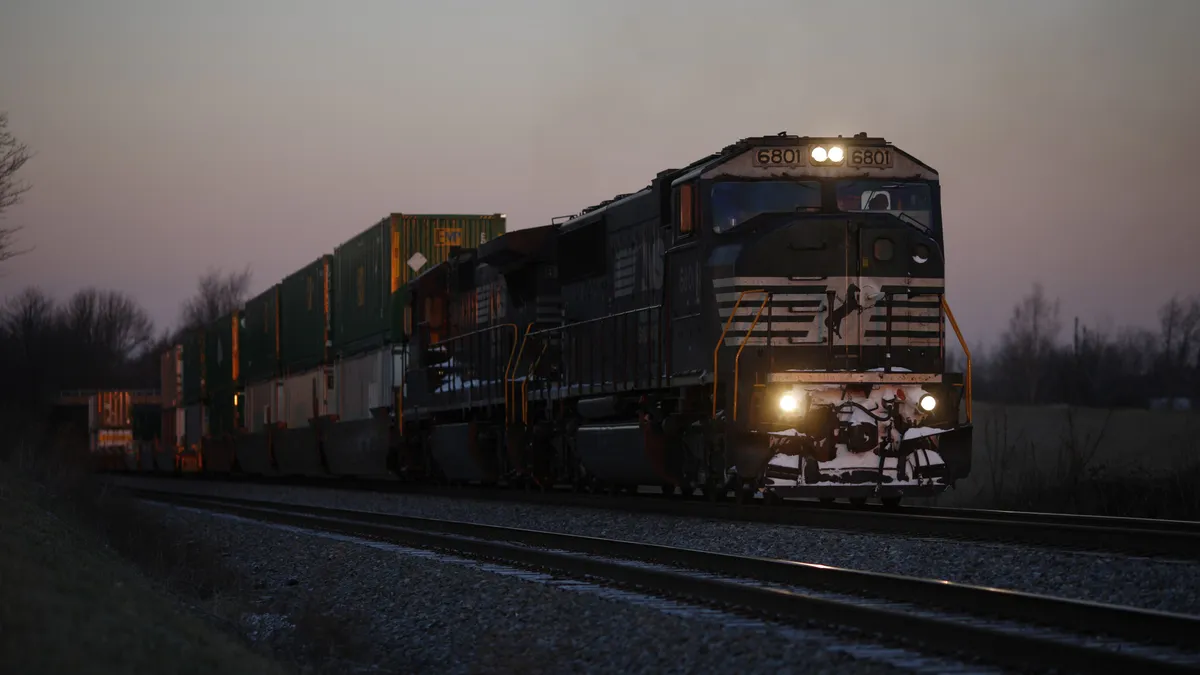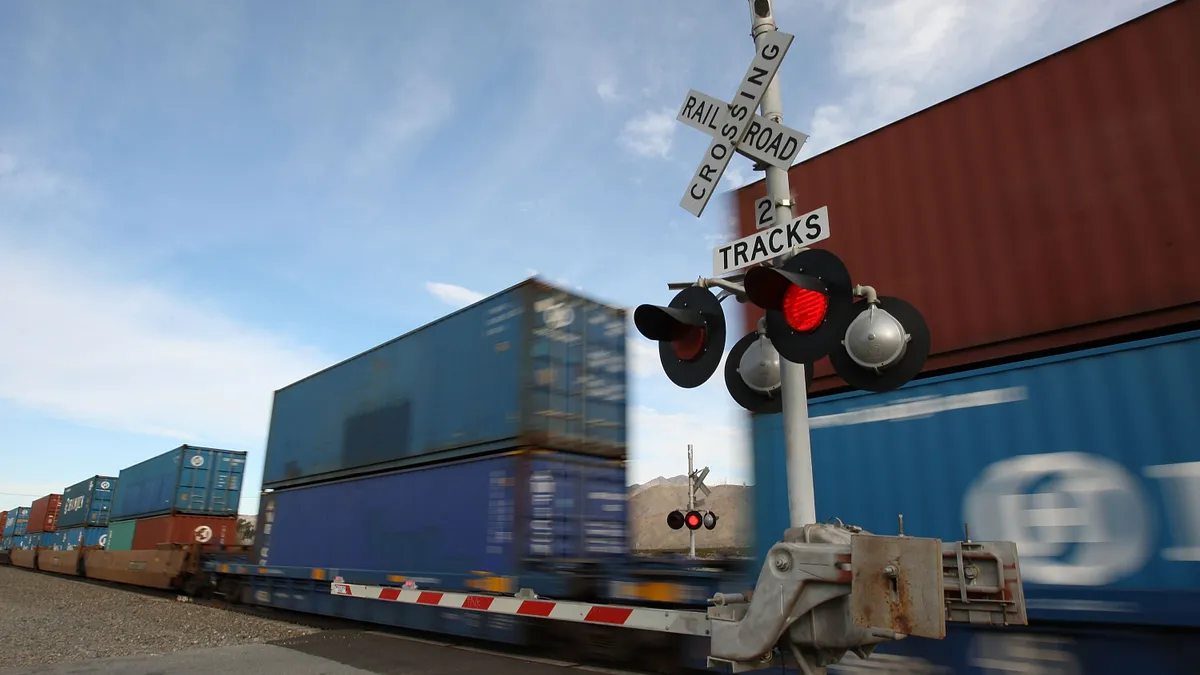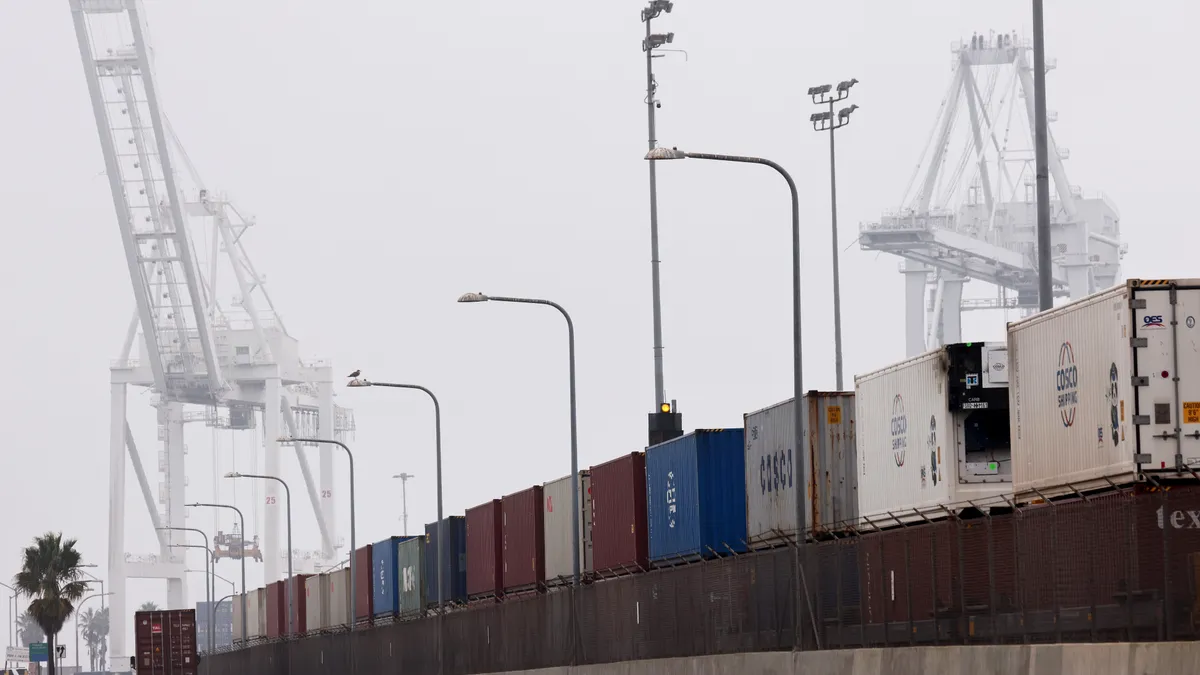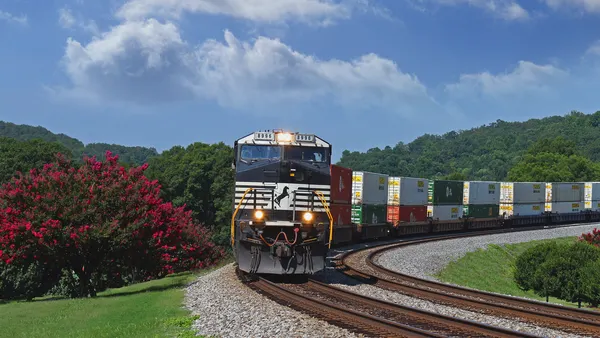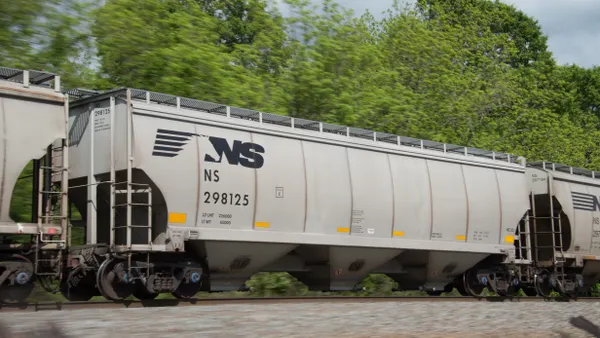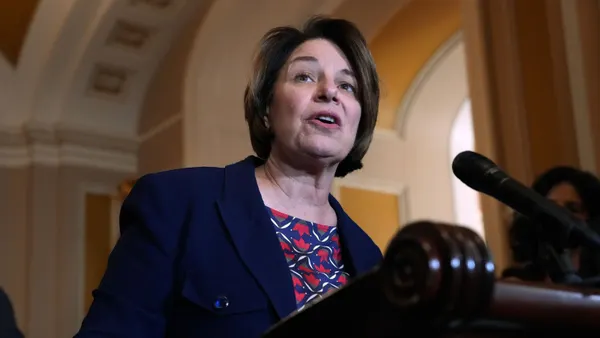Railroads and three unions representing tens of thousands of workers reached a tentative deal Thursday morning to avoid a freight shutdown that threatened to disrupt U.S. supply chains just as shippers enter their busiest season.
The agreement, which represents approximately 60,000 railroad employees, will now head to union members for a vote during which period they will not strike.
The deal includes a 24% wage increase over the five-year period from 2020 through 2024 with a 14.1% raise taking effect immediately, according to the National Carriers’ Conference Committee, which represents railroads in negotiations. Union members will also receive five annual lump sum payments of $1,000, and the wage provisions are in line with recommendations made by a presidential labor dispute board.
The agreement also temporarily freezes monthly healthcare contributions and contains provisions allowing workers to take time off for certain medical events without being penalized under carrier attendance policies, according to a joint statement from the International Association of Sheet Metal, Air, Rail, and Transportation Workers, Transportation Division (SMART-TD), and the Brotherhood of Locomotive Engineers and Trainmen (BLET).
Rail carriers had made a flurry of deals with several unions over the past few weeks. But negotiations with a few large unions stalled ahead of a Sept. 16 deadline.
Ultimately, rail employers and the three unions that had eluded a deal were able to surpass roadblocks after 20 hours of negotiations brokered by U.S. Labor Secretary Marty Walsh.
"With this agreement, railroad companies will be able to retain and recruit workers, they'll be able to continue to operate effectively as a vital piece of our economy," President Joe Biden said during live remarks Thursday. "They're really the backbone of the economy."
Railroads had begun limiting service of hazardous materials and other cargo in preparation for a strike, and noted that more disruptions would occur if an agreement was not reached. As of Thursday morning, Union Pacific, BNSF, CSX, Norfolk Southern and Canadian National all canceled embargoes implemented earlier this week, according to a database maintained by the Association of American Railroads.
The deal is welcome relief for shippers who had warned that a shutdown of the nation's rail system would have catastrophic impacts. A strike would have occurred just as agricultural producers prepare for the fall harvest season and retailers ready for the busy end-of-year shopping period.
“We are relieved and cautiously optimistic that this devastating nationwide rail strike has been averted," said National Retail Foundation President and CEO Matthew Shay in a statement. "We appreciate the Biden administration’s intervention on behalf of the businesses and consumers who would have been impacted at a time when high inflation and economic uncertainty are challenging consumer budgets and putting business resiliency at risk."
Beyond healthcare and wages, SMART-TD and BLET said the unions have preserved "two-person crews for the indefinite future." The Federal Railroad Administration had proposed a rule mandating two-person crews earlier this year, which drew significant backlash from carriers who said it would hamper efforts to make operations more efficient.
If a deal wasn't reached by the Friday deadline, Congress was prepared to intervene. Republican senators on Wednesday had pushed to force the labor unions and management to accept the contract recommendations of the presidential board, though it was blocked by Democrats.
Speaker of the House Nancy Pelosi said House members had prepared and reviewed legislation written by the Transportation and Infrastructure Committee, and that lawmakers stood ready to act if an agreement was not reached by the deadline.
“Thankfully this action may not be necessary," Pelosi said in a statement. "We congratulate the unions and railroads for coming to an agreement, because it is in the national interest that essential transportation services be maintained.”



